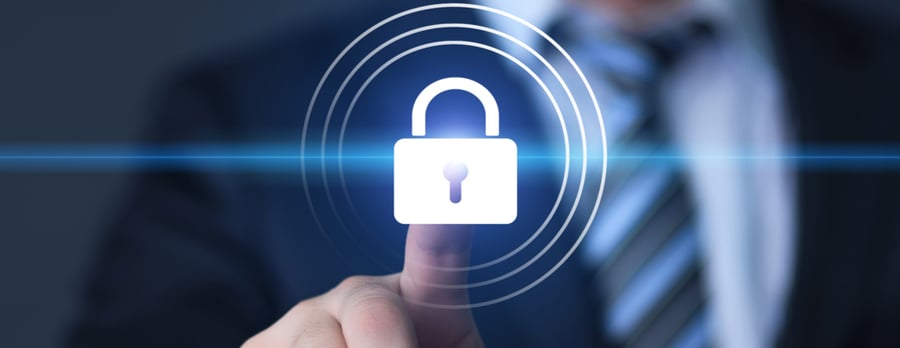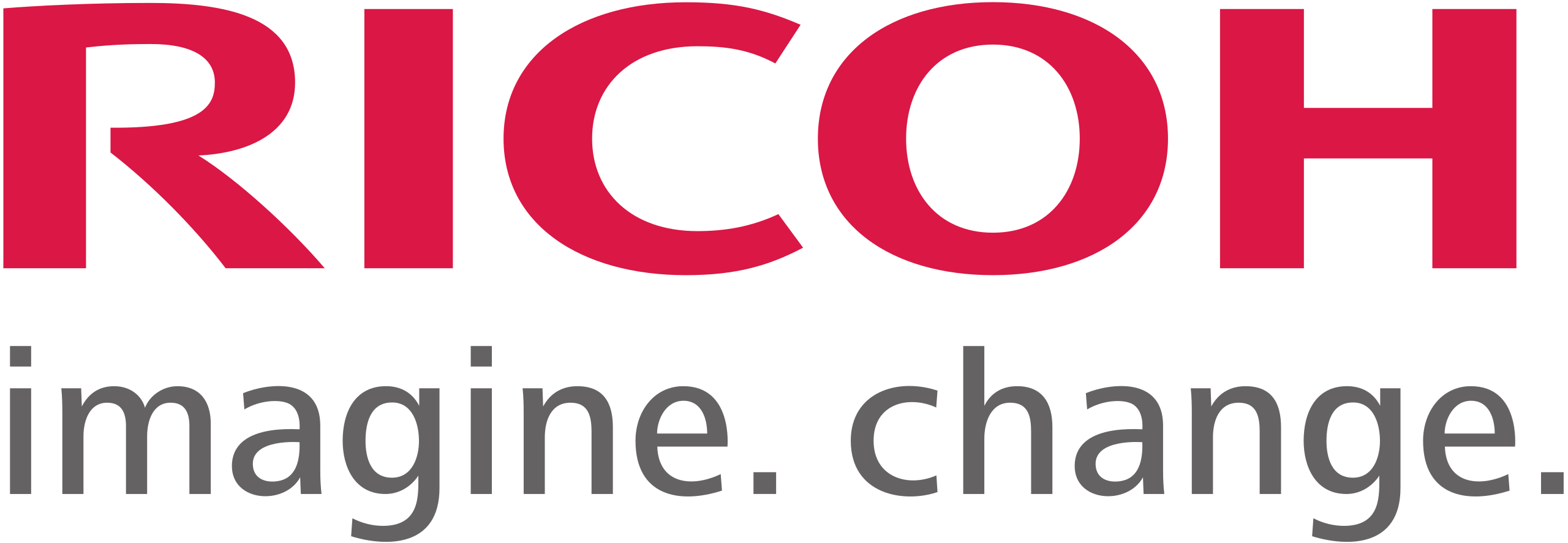6 min read
27 critical cybersecurity tips you can implement today
By:
dcoatney
on
June 19, 2018
Updated: August 8, 2024

According to a recent Bank of America Merchant Services report, 30% of respondents said they would permanently end a relationship with small businesses that suffered a data breach. That’s why companies invest heavily in IT infrastructure to prevent cyberattacks and data breaches that can irreversibly damage their reputation, especially as more resources move to the cloud.
Customers across industries — healthcare, financial services, and education — expect seamless digital experiences. And workforces are more distributed than ever before. These changes place new demands on IT, and cybersecurity teams can be overwhelmed with managing new cyber threats.
Cybersecurity starts with a strong defense that implements layers of security. The cyber security tips outlined in this article cover several areas that include security best practices for employee training, on-premises and remote work security, and data privacy measures. Use these security tips as an essential starting point in your strategy to protect your business’s data, infrastructure, and reputation.
Cybersecurity training tips
Organization-wide awareness of threats is key to preventing cyber attacks. Your employees need to know how hackers can take advantage of security vulnerabilities, how to recognize various types of attacks, and how to prevent and report cybersecurity threats.
Inform and train employees from day one on why security measures matter, convincing them that they are the first line of defense in preventing cyber attacks. Make sure that these security practices and habits are integrated into their daily routine by:
- Starting training early in the onboarding process and fusing security measures with regular work duties.
- Creating ongoing training levels that employees can complete, tying their progress to increased benefits and pay raises.
- Showing how workplace security measures can prevent cyber attacks and unauthorized access to sensitive information.
- Teaching them how hackers gain access and profit from data breaches.
- Providing examples demonstrating the extent of damage cyber attacks can cause to businesses and individuals.
- Making cybersecurity an essential part of internal company communications, such as internal newsletters, onboarding sessions, and continual learning opportunities.
- Creating incentives that reward employees that submit reports concerning suspicious emails or application issues.
.png?width=757&name=Copy%20of%20Quote%20Graphics%20(26).png)
Online safety cybersecurity tips
Modern organizations have to connect multiple offices or facilities, integrate public and private cloud storage, and facilitate communication with commercial partners and clients. Workplace internet usage comes with a host of cybersecurity threats that can infect your network infrastructure and expose data.
Each time employees access external systems and communications, there’s a risk that business systems can be exposed. Something as simple as opening an email from outside your organization or clicking a link on social media can make your business vulnerable to phishing attacks.
The following list of tips ensures that employees remain proactive in preventing malicious code from infecting their devices and exposing sensitive information:
- Use Virtual Private Networks (VPNs) to encrypt data and act as an additional layer of security over your private network when employees visit external websites.
- Never send sensitive data or passwords through social media, email or SMS — personal data should only be sent through applications verified by service providers.
- Avoid phishing scams — email messages from unknown senders may contain malicious code or instructions (such as a software update) that prompt users to send sensitive data. Always check the sender’s email address to ensure that it is from a verified financial institution.
- Avoid using public networks to conduct transactions–public Wi-Fi services have security flaws that can expose sensitive data when accessing a company application or bank account.
- Never use unknown devices to conduct transactions using private data–always use company-provided computers and mobile devices when sending personal information or executing transactions with a debit or credit card.
Cybersecurity Tips for Remote Workers
The prevalence of remote work has grown by leaps and bounds in recent years - sometimes outpacing the implementation of safety measures that ensure data security. The following actions can be taken to seal security vulnerabilities and prevent cyber attacks:
- Implement a mobile device management application that can remotely wipe a drive clean if it’s ever lost or stolen
- Provide a secure data plan that employees can use instead of public wifi networks
- Educate employees on ways to secure their residential WiFi connection in order to prevent the possibility of a data breach
Data privacy and protection tips
Businesses also need to prioritize data privacy — both for organizational data and individual employee data. As workforces and customer bases become increasingly distributed, IT teams need to think about how data is handled internally and whether their practices adequately protect sensitive and personal data while staying in compliance with legal regulations.
Various governments have established stricter data privacy regulations in recent years, such as the European Union’s General Data Protection Regulation (GDPR) and the California Consumer Privacy Act (CCPA).
.png?width=757&name=Copy%20of%20SIAA%20%20%20-%20Highlighted%20Text%20Template%20(2).png)
Even if these regulations don’t apply to them, your partners or customers in other regions aren't going to trust your company if they see headlines mentioning how you’ve weren’t in compliance with GDPR or CCPA regulations. Implement these data privacy and protection tips for your organization, employee, and customer data:
- Make sure that systems, databases, and users are only given access to private information when strictly necessary.
- Make sure that your employees understand when to adjust privacy settings and cookies when visiting other sites, and ensure that your sites also allow users to opt-out of having this data collected.
- Create protocols and designate a specific platform to share sensitive data to minimize the risk of breaches.
- Regularly run data privacy audits to make sure that you’re removing data from your systems in compliance with government privacy regulations.
- Require two-factor authentication every time to access any databases storing sensitive information, even if the person requesting access is on-premises or logged into a work account.
- Use antivirus software to scan protected databases and cloud storage for vulnerabilities and automate remediation or reporting to ensure quick IT responses to any issues.
Integrating cybersecurity across your teams, processes, and systems
The business world is undergoing a digital revolution that is fueled by data. As the internet grows, so do incentives for hackers to extract data on any company network, irrespective of its size.
Businesses can fight back through a solid cybersecurity plan that starts with employee awareness and builds progressively with comprehensive training. Besides reducing threats, cybersecurity training allows companies to integrate employees into an essential part of the business that can earn them incentives and increase morale.
When combined with professional security services that protect your processes and systems, these components make a stellar combination that can protect your data, secure your infrastructure, and safeguard your valuable company reputation.
Prevent data loss with professional security services
Investment in cybersecurity services costs far less than repairing the damage of a cyber attack. Professional security services from Standley Systems can enhance the safety of your data in the following ways:
- Secure document management — keep your data safe through the use of strong passwords, access restrictions, invisible folders, and confidential contract fixes
- Cloud-based solutions — leverage first-in-class third-party data security infrastructure that keeps documents safer when compared to hard copy and legacy local file systems
- Enhanced network security — keep data safe on network devices such as WiFi, laser printers, mobile devices, and cloud services
- Remote monitoring — guard your network infrastructure off-premises, ensuring a professional is always on the lookout for network issues, security breaches, and attacks from cyber criminals.
Contact Standley Systems today to learn how we can help you implement these cybersecurity tips across your network, hybrid cloud infrastructure, on-premises systems, and employee training.












